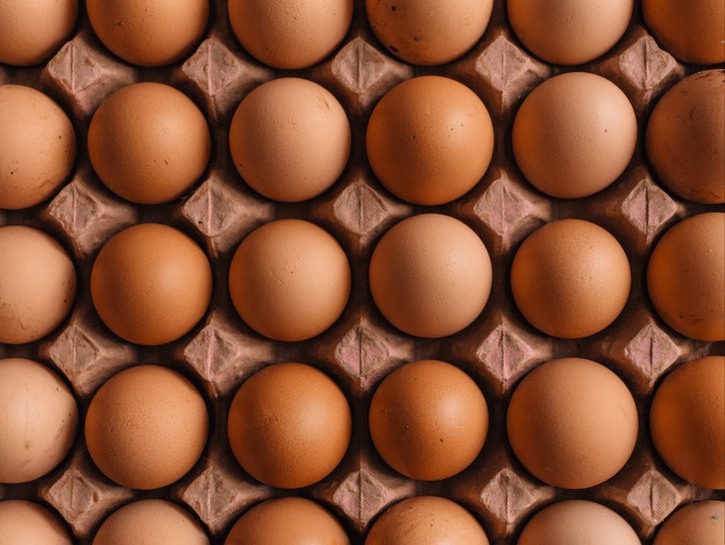What Role Do Eggs Play In Baking?
Eggs are found in many recipes for baked goods. They help to bind ingredients together, and they prevent a crumbly texture by adding extra moisture to the dish. Eggs also serve as a leavening agent, just as baking soda and baking powder commonly do in baking. Finally, eggs create air pockets that expand during the baking process, adding structure to baked goods.
Whether they are used to bind ingredients together or add moisture and flavor, eggs and their substitutes are essential when baking. Here are few things eggs help out with during the baking process.
Binding
Egg yolks have the ability to bind ingredients together to prevent them from separating during the baking process. When heat is applied, eggs firm and give support to desserts and pastries.
Leavening
If you are need of a leavening agent for a delicate dessert of soufflé, look no further than whipped egg whites. Whipping egg whites creates a foam and when that foam is heated, the air trapped inside the batter of whatever you are baking expands and causes the dish to rise without the use of yeast, baking soda, or baking powder.
Moisture
If you’ve ever forgotten to add eggs to a recipe without a substitute, you know how crucial they are to adding moisture to any baked good. Without eggs, your cakes and cookies are just a dry, crumbly mess.
Flavor
The fat content in eggs is what helps give baked goods an ultra rich flavor, especially when combined with sugar.

What Are The Most Common Egg Substitutes?
Since eggs play such a significant role in how your recipe turns out, you can’t simply leave them out if you don’t have any or if dietary restrictions prevent you from using them. Thankfully, there are numerous egg substitutions available. Here are some of them:
1. Commercial Egg Replacements

Commercial egg substitutes are very effective, but unless you already have one on hand, you might need to make a trip to your local grocer. A commercial egg replacement such as Bob’s Red Mill Egg Replacer is the perfect egg substitute for vegans and vegetarians. Most commercial egg replacements are made from a mix of tapioca starch, potato starch, and various leavening agents. Of all of the substitutes on this list, commercial egg replacements are the most similar to real eggs.
Follow the instructions on the package.
2. Unsweetened Applesauce

Applesauce will replace the moisture that eggs provide, but it won’t change the flavor of your recipe. You can use sweetened applesauce, but you’ll want to reduce the amount of sugar you use elsewhere in the recipe.
Substitute one-fourth of a cup of unsweetened applesauce for one egg.
3. Mashed Banana

Mashed banana offers many of the same benefits that eggs provide when it comes to baking. If your recipe calls for more than one egg, however, you may want to look at other substitute options — banana flavor can quickly creep into the finished product. But a little bit of banana in quick breads and banana muffins will provide a sweet and fruity flavor, which might not be a bad thing!
Substitute one-fourth of a cup of mashed banana for one egg.
4. Silken Tofu

Silken tofu is another excellent egg substitute. It blends into mixes exceptionally well and will not affect the flavor of your baked goods. It has a creamy, moist texture that will replace the moisture content in eggs quite effectively.
Substitute one-fourth of a cup of silken tofu for one egg.
5. Ground Flaxseed

For a smooth texture, grind your flaxseed in a coffee grinder before mixing it with water. Let it sit until it becomes gelatinous, and then use it in place of eggs in your recipe.
Substitute one tablespoon of ground flaxseed and three tablespoons of water for one egg.
6. Vegetable Oil

Vegetable oil can be substituted for eggs in a pinch. It will keep your recipe moist and won’t alter the flavor; however, you should only use this substitute when the recipe calls for one egg. Using vegetable oil in a recipe that calls for more eggs could make the final product oily and greasy.
Substitute one-fourth of a cup of vegetable oil for one egg.
7. Buttermilk

Buttermilk is an excellent creamy, moist egg substitute for your baking recipes. It’s easy to use and will lend plenty of moisture to your breads, muffins, cakes, cornbreads, and more.
Substitute one-fourth of a cup of buttermilk for one egg.
8. Nut Butter

If your recipe would go well with a nuttier taste, try substituting egg with a nut butter like peanut, cashew, or almond butter. We recommend doing this with brownies, pancakes, or cookies. You should also use a creamy nut butter, not a chunky butter so that everything mixes smoothly.
Substitute one egg with 3 tablespoons of your favorite nut butter.
9. Gelatin

Gelatin is a great substitute for eggs because it is a gelling agent. It is derived from the collagen of pigs and cows, so if you are vegan or vegetarian, you might want to find another alternative. Gelatin can be found in the form of an unflavored powder at most grocery stores.
To substitute one egg, dissolve 1 tablespoon of unflavored gelatin in 1 tablespoon of cold water. Stir the mixture in with 2 tablespoons with boiling water until it starts to froth.
10. Arrowroot Powder

Arrowroot is plant that comes from South America. Starch is extracted from the Arrowroot plant and is sold in powder form. Arrowroot powder is resemblant to corn starch and can easily be used as cooking or baking substitute.
To substitute one egg, mix 2 tablespoons of arrowroot powder with 3 tablespoons of water.
Eggs are a crucial component of many recipes. Be sure to try one of these amazing egg substitutes the next time you’re in a bind!
